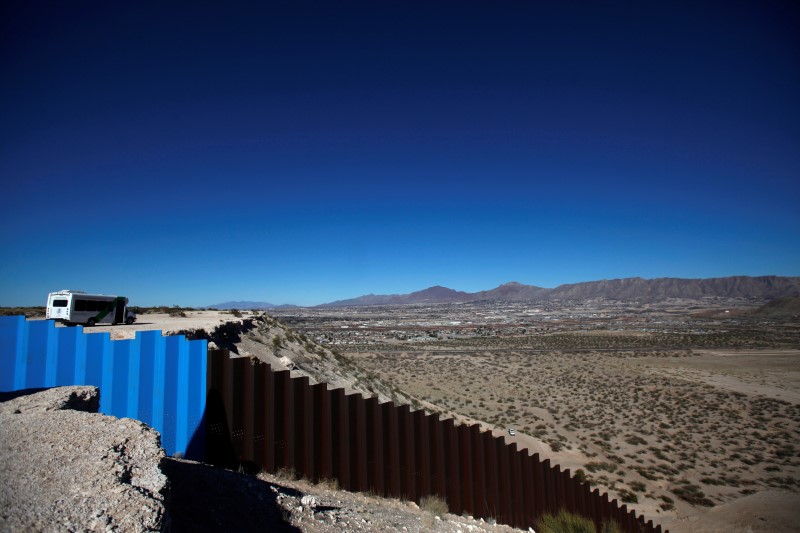By Julia Edwards Ainsley
WASHINGTON (Reuters) - President Donald Trump’s promise to use existing funds to begin immediate construction of a wall on the U.S.-Mexico border has hit a financial roadblock, according to a document seen by Reuters.
The rapid start of construction, promised throughout Trump's campaign and in an executive order issued in January on border security, was to be financed, according to the White House, with "existing funds and resources" of the Department of Homeland Security.
But so far, the DHS has identified only $20 million that can be re-directed to the multi-billion-dollar project, according to a document prepared by the agency and distributed to congressional budget staff last week.
The document said the funds would be enough to cover a handful of contracts for wall prototypes, but not enough to begin construction of an actual barrier. This means that for the wall to move forward, the White House will need to convince Congress to appropriate funds.
An internal report, previously reported by Reuters, estimated that fully walling off or fencing the entire southern border would cost $21.6 billion - $9.3 million per mile of fence and $17.8 million per mile of wall.
DHS officials did not respond to a request for comment on this story.
Trump has said he will ask Congress to pay for what existing funds cannot cover and that Mexico will be pressured to pay back U.S. taxpayers at a later date.
Republican House Speaker Paul Ryan has said he will include funding for a border wall in the budget for next fiscal year. He has estimated the cost to be between $12 billion and $15 billion.
Many Republican lawmakers have said they would vote against a plan that does not offset the cost of the wall with spending cuts.
In the document it submitted to Congress, the DHS said it would reallocate $5 million from a fence project in Naco, Arizona, that came in under budget and $15 million from a project to install cameras on top of trucks at the border.
The surveillance project was awarded to Virginia-based Tactical Micro, but was held up due to protests from other contractors, according to the DHS document. Tactical Micro could not be reached for comment.
The DHS only searched for extra funds within its $376 million budget for border security fencing, infrastructure and technology, so it would not have to ask for congressional approval to repurpose funding, according to the document.
Contractors cannot begin bidding to develop prototypes until March 6 but more than 265 businesses already have listed themselves as "interested parties" on a government web site.

Those interested range from small businesses to large government contractors such as Raytheon (N:RTN).